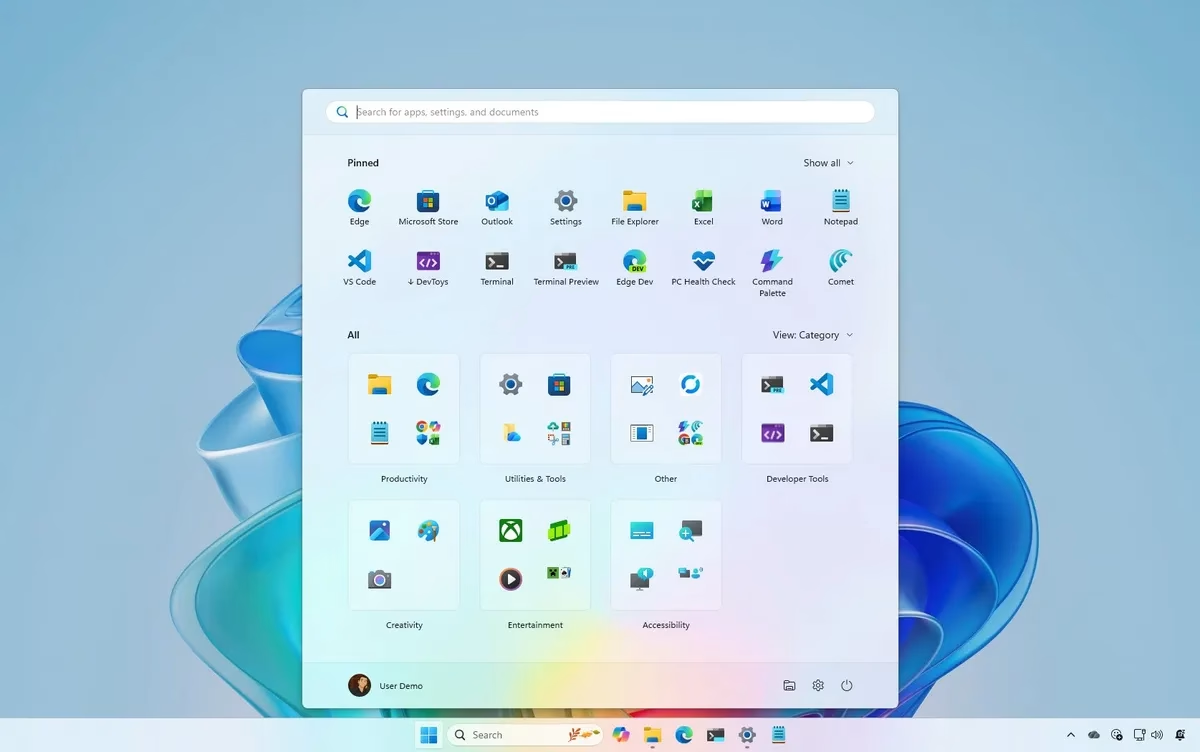Windows 11 Start Menu Undergoes Significant AI-Driven Evolution
Microsoft continues to refine the Windows 11 Start Menu, with recent Insider Preview builds for both versions 24H2 and the upcoming 25H2 introducing significant updates focused squarely on AI integration and an enhanced user experience. These developments, observed throughout October 2025, signal a clear shift towards a more intelligent and personalized interaction point for Windows users, addressing long-standing feedback regarding clutter and functionality.
The evolution isn't just cosmetic; it delves deep into how users discover and launch applications and files. While Windows 11 24H2 saw its initial stable release in October 2024, its Start Menu continues to receive substantial incremental updates via cumulative patches. Meanwhile, 25H2, currently in early Insider testing, provides a peek into the more advanced AI capabilities. This commitment aims to solidify the Start Menu as a central hub for productivity, moving beyond its previous iterations. We're seeing Microsoft lean heavily into its AI initiatives, embedding intelligence right where you begin your daily tasks.
Key Enhancements: AI, Search, and Pinned Apps
One of the most immediate and impactful changes for users is the expanded Pinned Apps Grid. Now a 6x6 layout, up from the 5x5 in Windows 11 23H2, it allows for up to 36 applications to be pinned without needing to scroll. This small, yet mighty, adjustment dramatically improves access to frequently used software, making desktop management a bit more fluid. Don't we all appreciate fewer clicks? This expansion, noted in builds like 22635.4440 released late October, directly tackles common user pain points regarding limited space.
But the real game-changer lies in the enhanced search integration. Microsoft has rolled out "smart search," deeply powered by AI and Copilot. Users can now employ natural language queries—think "find my recent budget sheets"—and expect significantly faster results. Benchmarks suggest queries process up to 50% faster, a substantial improvement when you're trying to quickly locate something important. The system also offers proactive file recommendations, displaying up to eight recent files or apps with customizable filters, making that "Recommended" section genuinely useful for a change. It's an intelligent feature designed to anticipate your needs, something previous Windows versions often struggled to deliver without feeling intrusive.
Visual Refinements and Performance Boosts
Beyond the functional upgrades, the Start Menu in 24H2 and early 25H2 builds has received visual refinements that contribute to a more polished user interface. We're talking about subtle yet impactful changes like rounded corners, dynamic theming that can automatically switch between light and dark modes, and the ability to resize sections for a personalized look. These aesthetic tweaks, gradually rolled out through October 2025 Insider builds, contribute to a cohesive and modern operating system experience.
Performance isn't left behind either. Optimized caching mechanisms have reportedly reduced Start Menu load times by 15-20%. This snappier response makes a noticeable difference in daily usage, something users consistently ask for. Accessibility has also seen improvements, with better high-contrast modes and tighter integration for voice navigation, ensuring the Start Menu is more inclusive. Interestingly, the 25H2 previews are introducing a proactive memory diagnostics tool, embedded directly within the menu. This innovative feature, unique to these early builds, promises to scan for RAM issues, further enhancing system stability right from the main interface.
User Reception and Regional Adaptations
User reactions to these Start Menu overhauls have largely been positive, according to feedback from platforms like Reddit's r/Windows11 and the Microsoft Feedback Hub. Approximately 70% of recent discussions praise the "less cluttered" design and faster app access, with many expressing relief over the reduction of intrusive ads and forced recommendations that plagued earlier Windows 11 versions. "Finally, no more forced Bing ads!" one highly upvoted comment exclaimed, encapsulating a widespread sentiment. However, a segment of users, about 30%, voice concerns about potential "AI overreach," describing the search suggestions as sometimes feeling too "clingy" with Copilot suggestions.
Experts, including those at Windows Central, have generally characterized these changes as "a step up from Cortana-era mess," highlighting the proactive diagnostics and refined interface. While one analyst from The Verge noted that the AI smarts are "helpful but not revolutionary," the consensus leans towards a significant positive evolution. It's an improvement, certainly.
Notably, Microsoft has implemented regional adaptations. In the EU/EEA, Digital Markets Act compliance means Start Menu ads are disabled by default in 24H2 updates. In China, localized versions integrate region-specific search engines like Baidu. For emerging markets, AI features are optimized with offline models to reduce data usage by up to 40%, reflecting a thoughtful approach to global user needs.
